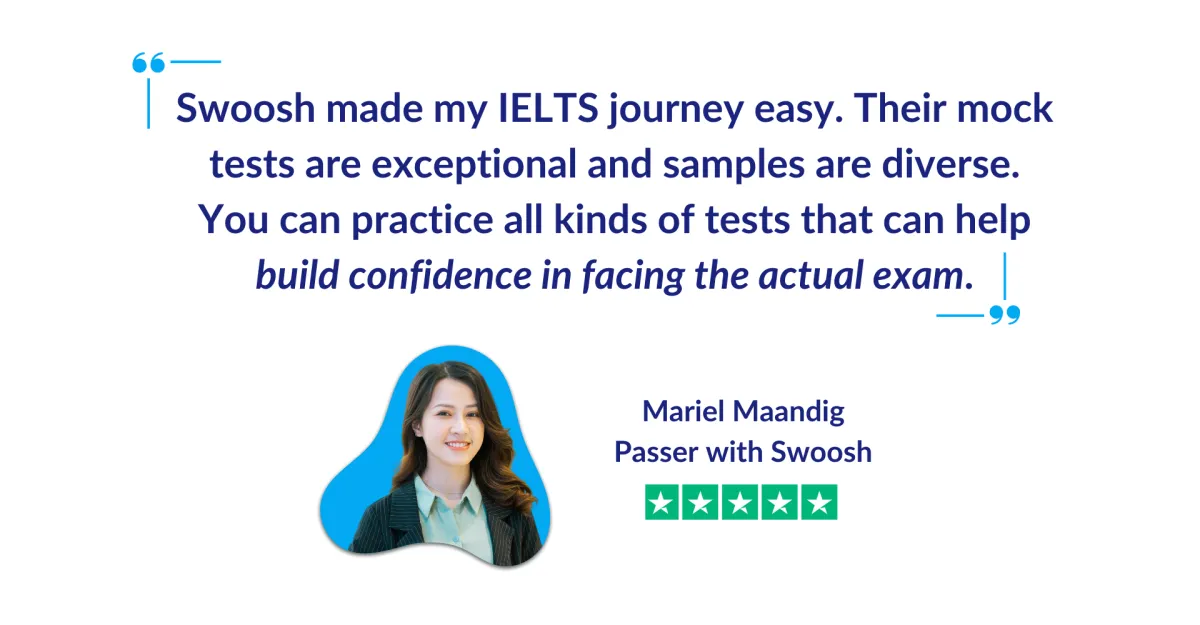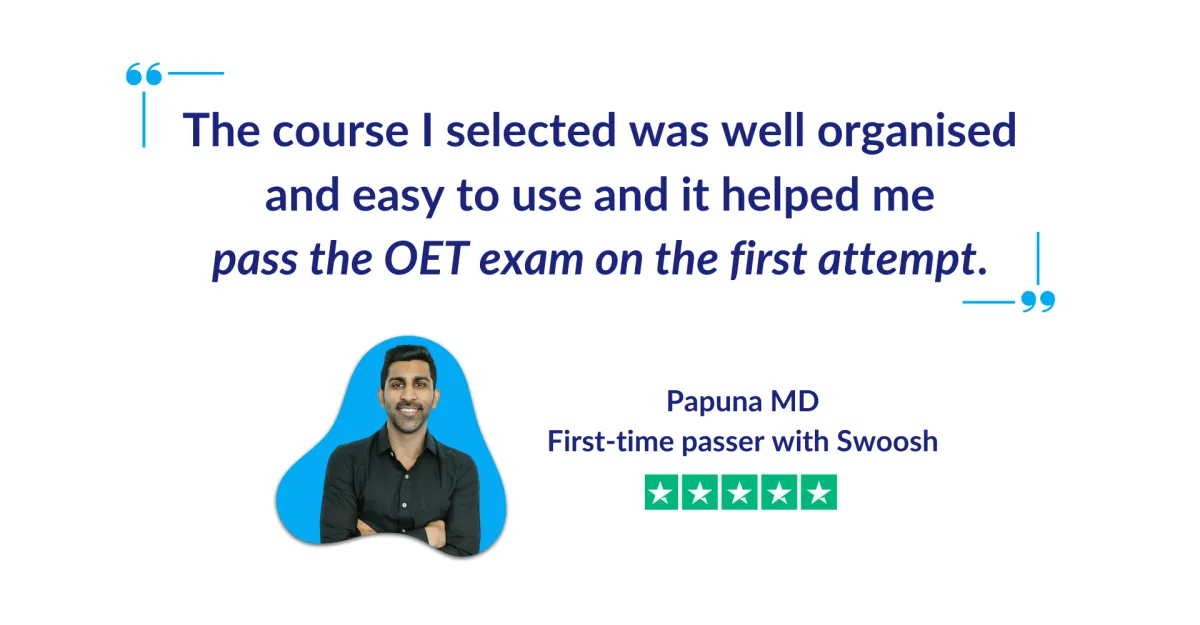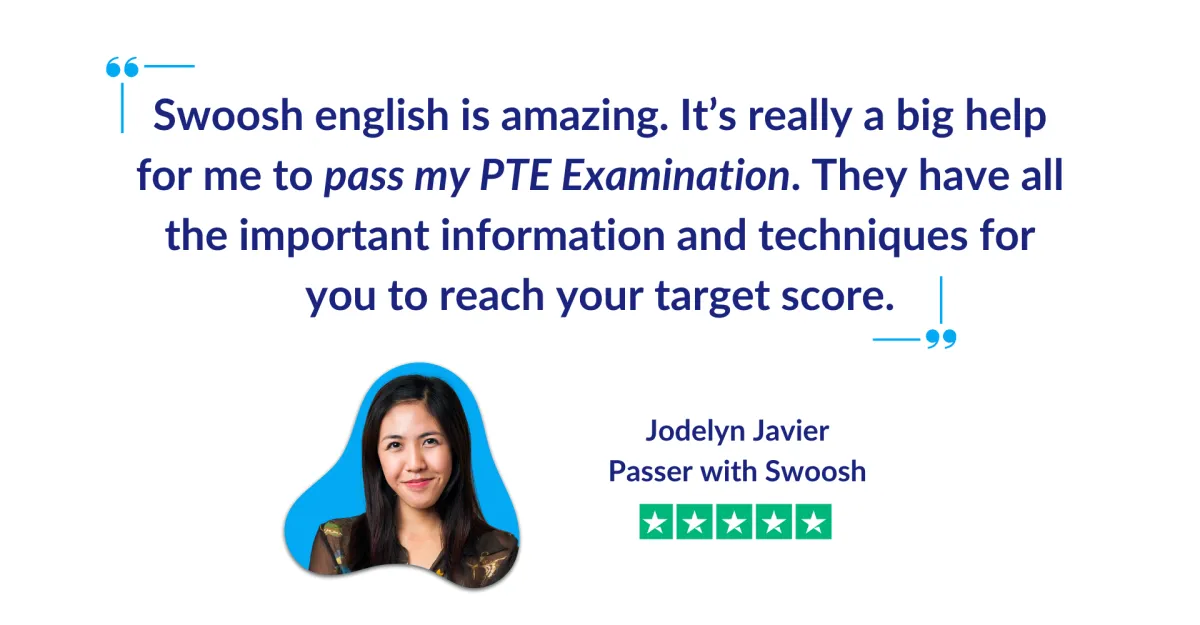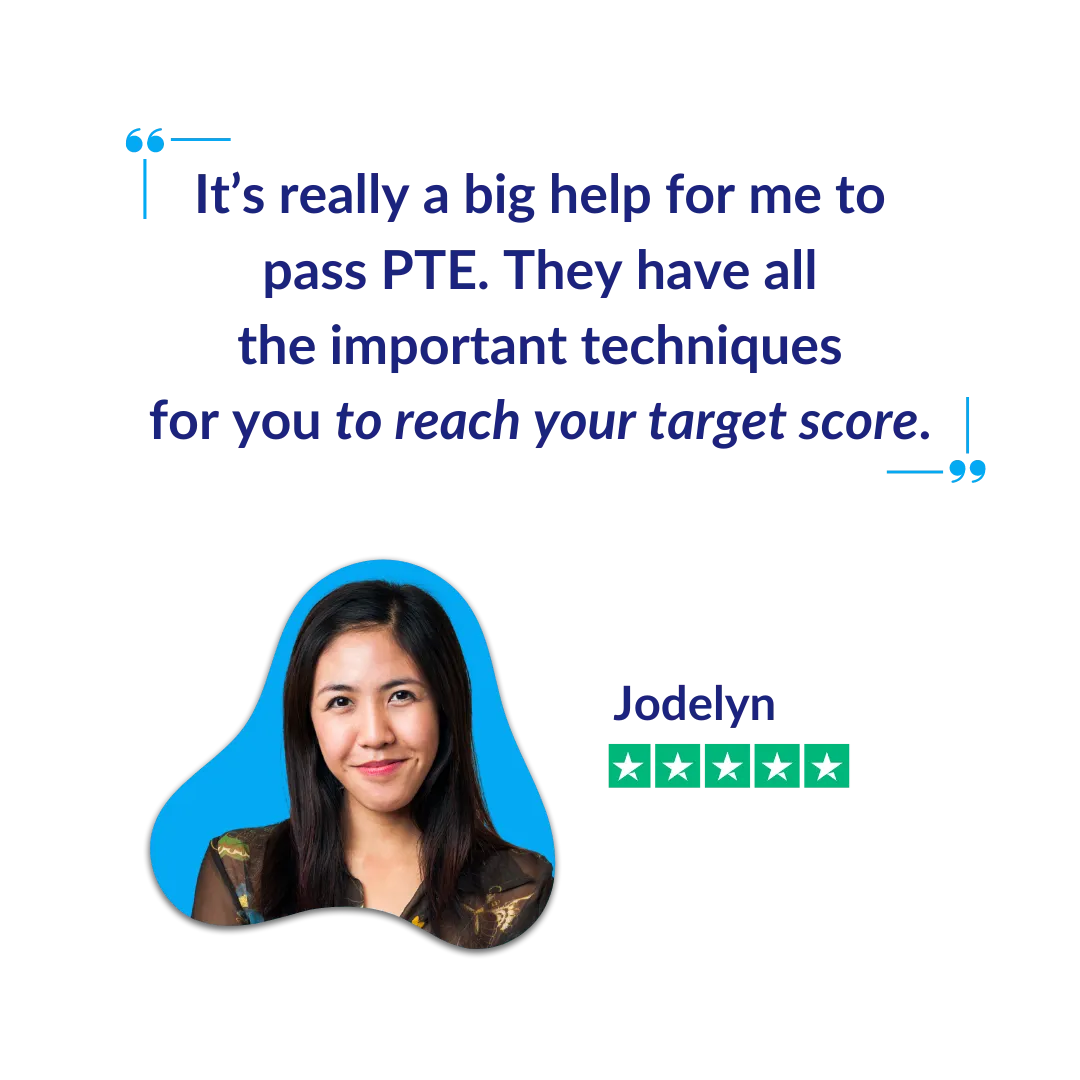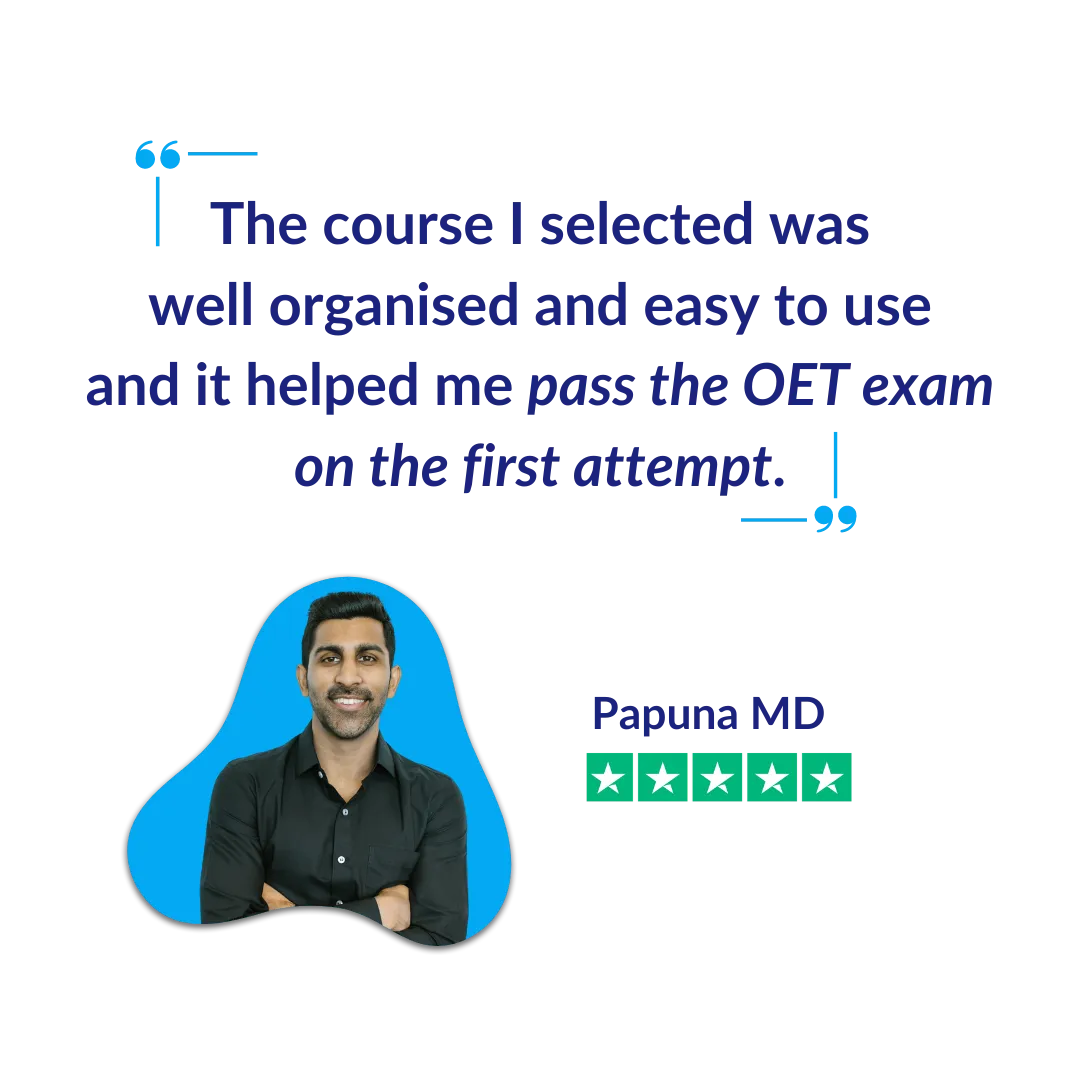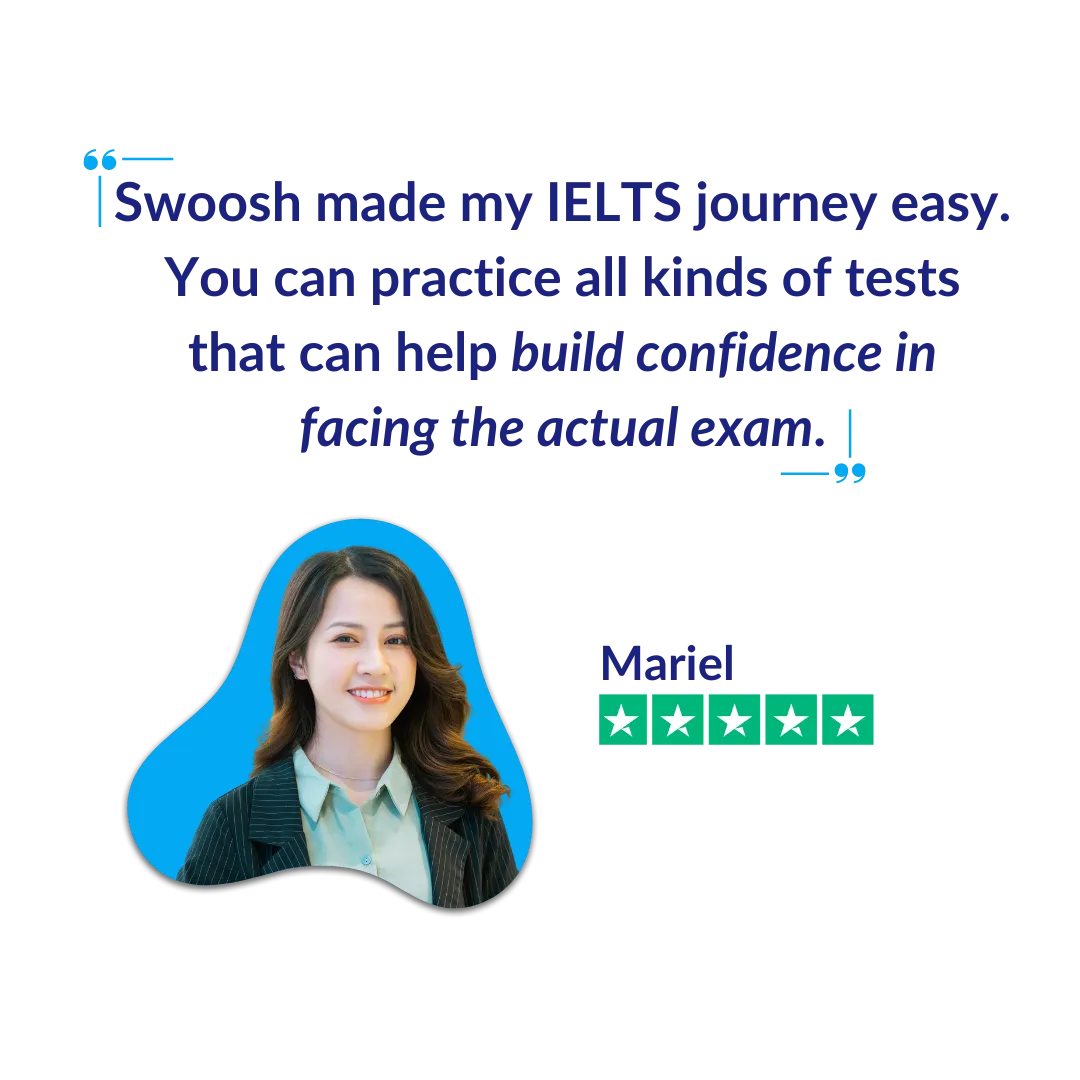Ready to pass your exam with speed and ease?
Online Test Prep
To Pass With Confidence
OET, IELTS & PTE Courses
Learn from the experts. Study flexibly. Achieve your goals.

Why Swoosh English?

OET, IELTS & PTE
Classes and Materials
Anytime, Anywhere

Feedback & Support
From Caring
Expert Teachers

Affordable Courses
to Help Everyone
Reach their Potential
30,000+
successfully passed students and counting.

Approved by Official Exam Bodies
OET Official, British Council IELTS and Pearson PTE have approved our courses, so you can trust us to help you pass.

Experienced Expert Teachers
We only hire teachers with years of experience. Our kind and caring teachers will turn your self-doubt into confidence.

Study anytime, anywhere
Everything you need to pass in one place, wherever you want to study 24/7. Fit your test prep into your busy lifestyle easily.

Never Miss A Class
Our class schedule considers different time zones. Get access to all recorded lessons so you never miss out on your teacher's expert advice.

Easy-to-Use Dashboard
We promise our courses are easy to use. We know how overwhelming exam preparation can be and do our best to make it easier for you.

Proven Curriculum
Our courses have helped thousands of students pass. We are excited to help you, too, so you can make your friends and family proud.

24/7 Supportive Community
Our customer support team is here 24/7, so you will never feel alone. You'll also get access to our community of students who know exactly what you are going through.

Money-Back Guarantee
We are so confident you will love our courses that we are giving you an up to 14-day money-back guarantee so you can sign up with total peace of mind.

Hear from our
Swoosh Success Stories...
Hear from our Swoosh Success Stories...
How to pass your exam with confidence with Swoosh

Explore our courses
and sign up to
change your life today.

Start your journey to success
instantly by following your study
plan and teacher guidance.

Say goodbye to self-doubt
and pass your exam
on your first or next attempt.
Meet Your Teachers

Elsemarie Jensen
BA, TEFL, TYLEC, OET Provider
I have taught Academic English for exams, delivered IELTS workshops and been an examiner.

Alexander Lindsey
BSc, CELTA, DELTA , OET Provider
I have been teaching English online for the last 5 years and I focus on teaching OET, IELTS, PTE and Business English.

Fraser Braidwood
BA / CELTA / TEFL
I am an experienced educator with over 7 years teaching and management experience in the ESL industry.

Andrea Baxter
CELTA, OET Provider
I have been teaching English for over 35 years. I worked in Greece for 30 years and taught English to Greek students.

Louise Oliver
TESOL
I’ve been teaching since 2007 and I’ve taught in Romania, Russia, Japan, Italy and
Saudi Arabia.

Russell Field
BA , TEFL, MA
I have taught general, business and technical English to all ages and have worked in several European countries and Japan.

Tasnim Ghumra
BA, TEFL,
OET Provider
I have been teaching English for over 6 years. I work with students, helping them improve their English and prepare for their IELTS, OET and Cambridge exams.

Bryan Beaton
BSc , PGCE, MA Linguistics,
TESOL
I have taught for about 45 years, in primary, secondary, university and corporate classrooms - in Canada, Nigeria, mainland China, Hong Kong, and India.

Mark Smith
BSc, Adult Nursing, TEFL,
OET Provider
I was a Nurse for 16 years in the NHS. I have been teaching English since moving to Portugal in 2019. I teach OET, IELTS and PTE.
Meet The Rest of the Team

Alex
Founder
Hi, I’m Alex, the Founder of Swoosh. Swoosh English was born out of a passion to help transform people’s lives through passing their English exams – whether that’s for work, study or to move to the country of their dreams.

Scott
Managing Director
Hi, I’m Scott. I work with our whole team to bring you the best courses and materials to provide you with a first-class experience at Swoosh. I’m passionate about helping you pass your English language exams.

Barbara
Customer Success & Community Director
Hello everyone!
My job is to make sure
all the hard work from our academic directors and teachers is positively
passed on to you.

Grace
Product & Academic Director
Hello everyone! I lead the development of our courses and deliver academic support to all our students. My role involves shaping our course content to meet the needs of our learners to ensure a positive learning experience.

Una
Marketing, Sales & Growth
Director
Hi, I'm Una and I'm from Ireland.
I'm passionate about
helping you achieve your dreams and live to your fullest potential. I share the word about how we help students pass with our online courses so we can help even more of you change your lives and make the world a better place.

Cyreal
Sales Executive
Hi, I'm Cyreal from the Philippines. I'm here to answer any questions you have about our courses and how we can help your pass your exam with confidence. I love chatting with you all and seeing how we can help your challenges. Pop over to our chatbox now and say hello. Talk to you soon!

Mara
Academic and Customer Service Executive
Hello! I'm Mara. I am dedicated to equipping our students with valuable information, promptly addressing their concerns, and supporting them throughout their academic endeavours. We strive to exceed expectations in helping students achieve
their goals.

Icy
Academic and Customer Service Executive
Hi, I'm Icy. I am committed to providing our students with helpful information, answering their queries, and ensuring that they feel supported in their study journey. We go above and beyond to help our students get their goals realized.

Gabby
Marketing Executive
Hi! I'm Gabby.
I create social media content that engage with future and actual students who want to accomplish their professional goals. Hopefully our content will educate and entertain you, make sure you follow us!

Daniel
Email Marketing Executive
Hi, I'm Daniel. I aim to provide you with valuable resources and updates through our emails to help you achieve your English language learning goals. I'm committed to delivering the best experience to our subscribers.
Blog Articles
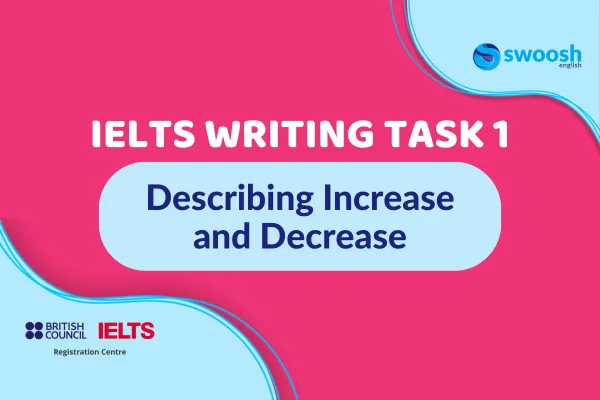
IELTS Writing Task 1:
Describing Increase and Decrease
Here's a selection of the most useful adjectives and adverbs which you can start using to elevate your descriptions and get a higher grade in the IELTS Writing test...

The Complete Guide to OET Reading
Welcome to our OET Reading Guide! At Swoosh English, we prioritise your success and are dedicated to helping you achieve your goals. We understand that tackling various texts under exam conditions can be daunting...

4 Common Mistakes in OET Writing and How to Avoid Them
Having corrected numerous OET writing responses, we have noticed recurring errors that can be easily avoided with increased awareness and attention to detail...
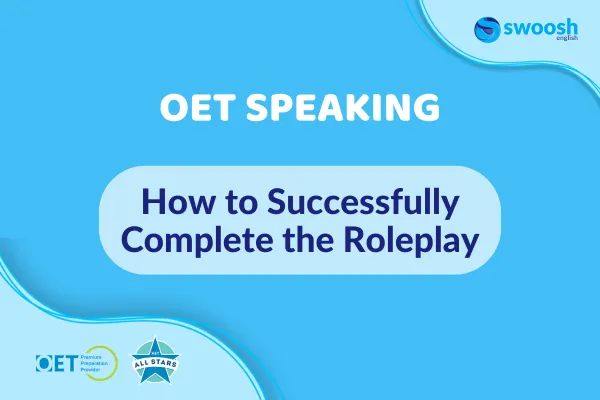
OET Speaking: How to Successfully Complete the Role Play
The OET Speaking test is designed to be familiar to medical professionals, involving a conversation between a healthcare professional and a patient. Each profession, such as nursing or medicine, has specific tasks tailored to their field within the OET Speaking test.
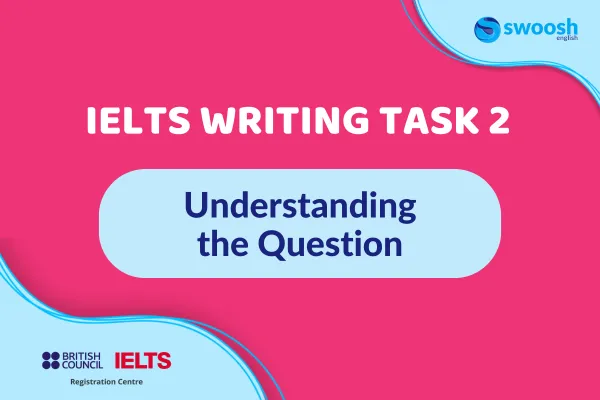
IELTS Writing Task 2: Understanding the Question
When it comes to acing IELTS Writing Task 2, the first step is to fully grasp and interpret the question. By honing your skills in comprehending the question, you'll be better equipped to craft well-structured and relevant responses, ultimately boosting your chances of success in the exam...

Enhance Your OET Listening Part B Score
with These 4 Effective Strategies
Struggling with multiple-choice questions in Parts B and C of the OET Listening test is a common challenge faced by many students. In this article, we will share four proven strategies to improve your performance in OET Listening
Part B...
Our Partners
Our Partners

